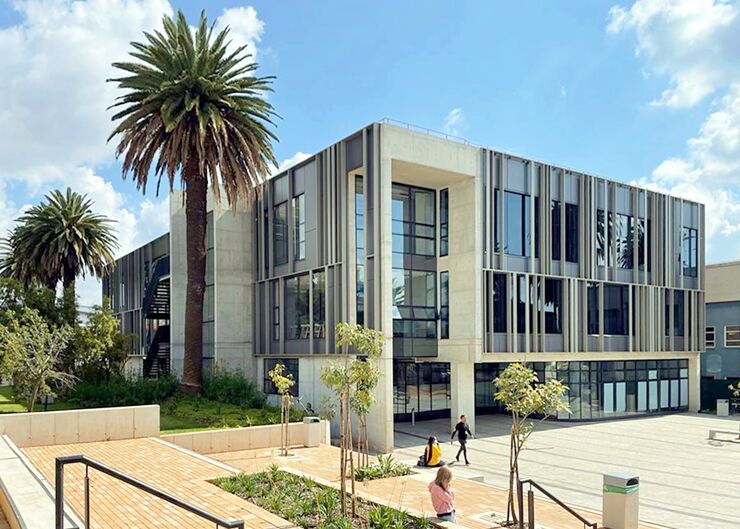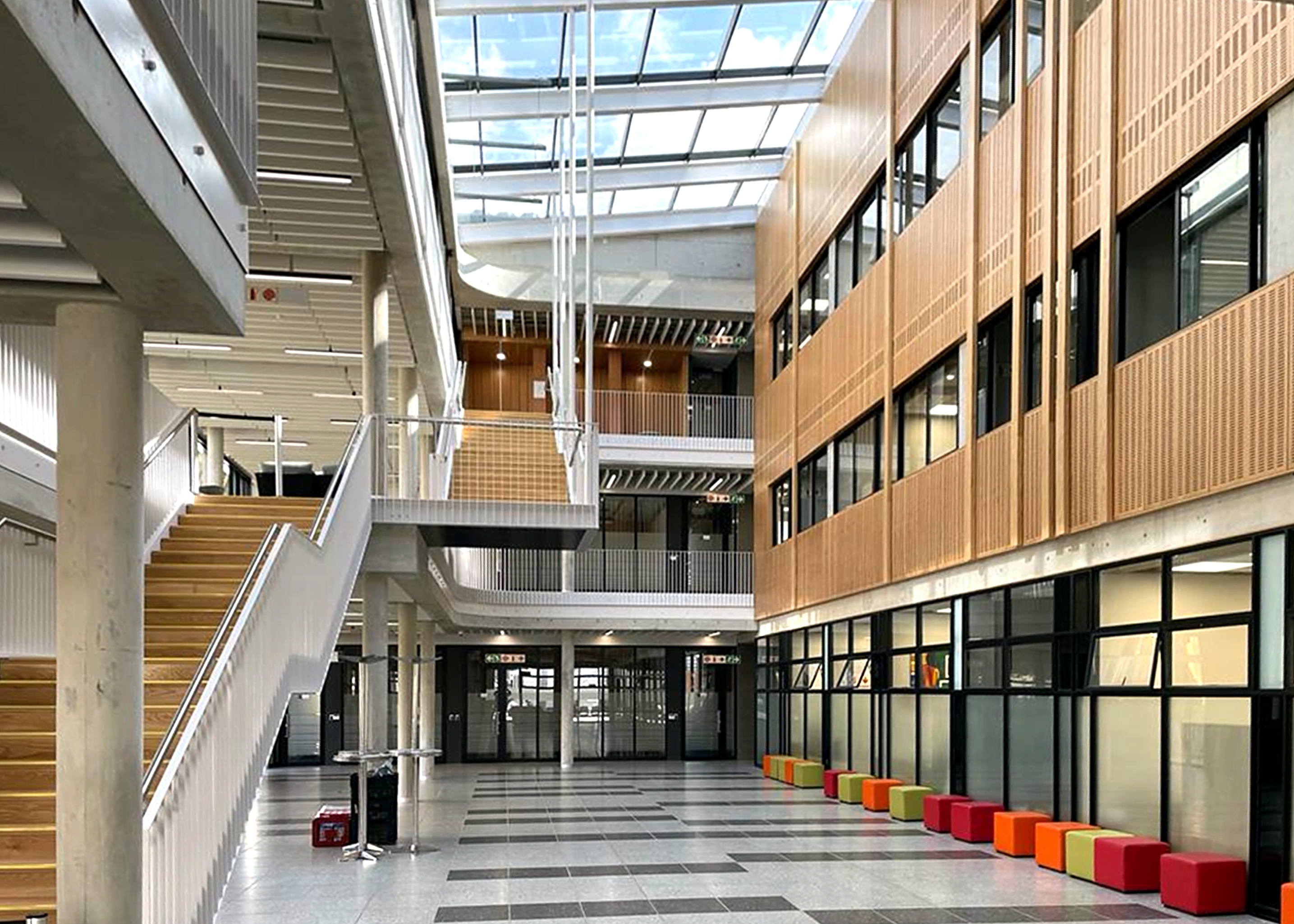
The University of Witwatersrand (Wits) in Johannesburg, South Africa has used two NEC4 Framework Contracts (FC) to deliver 22 construction projects worth R700 million (£30 million) over a three-and-a-half-year period. The projects were spread across the University’s Braamfontein and Parktown Campuses in central Johannesburg.
The frameworks were let to Tri-Star Construction and GVK Siya Zama Building Contractors in December 2020. Twenty projects were each delivered using an NEC4 Engineering and Construction Contract (ECC) Option B (priced contract with bill of quantities) while two smaller ones used the NEC4 Engineering and Construction Short Contract (ECSC). All projects were successfully completed by the end of July 2024.
Wits acted as NEC project manager and ECS Associates was appointed as contract advisor under an NEC4 Professional Service Short Contract (PSSC), assisting the university to develop its contracting strategy and contract templates. A total of 50 professional advisors were appointed across the projects on NEC4 PSSC contracts. The NEC4 Supply Contract (SC) and NEC4 Term Service Contract (TSC) were also used.
Wide range of works
Wits is an experienced NEC user, having previously successfully adopted the NEC3 suite to procure a R1.5 billion (£64 million) programme of construction projects between 2008 and 2014 (see case study).
 The largest project in the latest NEC4-procured programme was the new Commerce, Law and Management faculty administration building in Braamfontein Campus West. The three-storey 3,100 m2 office building (pictured) features a slab cooling system rather than air-conditioning and was delivered under a R80 million (£3.4 million) NEC4 ECC Option B by Tri-Star Construction.
The largest project in the latest NEC4-procured programme was the new Commerce, Law and Management faculty administration building in Braamfontein Campus West. The three-storey 3,100 m2 office building (pictured) features a slab cooling system rather than air-conditioning and was delivered under a R80 million (£3.4 million) NEC4 ECC Option B by Tri-Star Construction.
Other projects in the programme included extensions and refurbishments of the Wits Planetarium, the Flower Hall, the Built Environment Precinct, the Health Sciences Campus and the Knockando Hall of Residence.
Collaborative frameworks
According to Wits’ acting director of campus planning and development Jason Huang, the university decided to enhance the overall quality of project and programme delivery by using the collaborative NEC4 FCs. ‘By using the NEC frameworks we were able to activate construction projects faster, with average time savings of two months on project procurement and contractor onboarding. The two contractors also achieved efficiency through repetition of work in a familiar environment and a reduced learning curve on each consecutive project.’
Huang says a key factor that made the NEC-based collaborative initiative so successful was the strong buy-in from Wits executive management. ‘In line with the NEC requirement to act in a “spirit of mutual trust and co-operation”, there was also a progressive and continuous improvement mindset of the delivery team.’
However, he says it took some time and effort to align the expectations and practices of the delivery partners towards NEC’s collaborative style of working. ‘Most of the delivery team had limited prior experience of NEC, typically with standalone contracts, and had reservations around the enhanced mutual benefits that could be achieved on a longer-term framework contract. But as the positive outcomes were demonstrated, all parties started to embrace the programme and project success.’
Wider adoption of NEC approach
Huang says the NEC collaborative contracting approach is now being promoted and discussed with the rest of the university with the goal of achieving broader adoption within its operational environment. ‘The shift towards a collaborative and mutually beneficial contracting strategy is not limited to the delivery of Wits’ infrastructure capital works programme – it has the potential to reap significant benefits in all other areas of institution’s operations.’
He says the infrastructure delivery team continues to lead by example. ‘In 2024 we will be initiating a continuation of the NEC framework approach for a new cycle of infrastructure projects. The team remains driven to achieving efficient delivery of infrastructure projects within this large and complex organisation.’
Wits has over 42,000 students and 12,000 staff, and its campuses occupy an area of more than 160 ha. It is one of the top three universities in Africa.
Benefits of using NEC
- NEC4 collaborative frameworks helped to deliver a programme of contracts more quickly, efficiently and to a higher quality.
- NEC contract suite flexibility provided a range of appropriate procurement options, with ECC Option B for large projects, ECSC for smaller projects, PSC for professional services, SC for supplies and TSC for term services.
- NEC requirement to act in a ‘spirit of mutual trust and co-operation’ was successfully embraced by the management and delivery teams, and could now be extended to delivery of other university operations.




